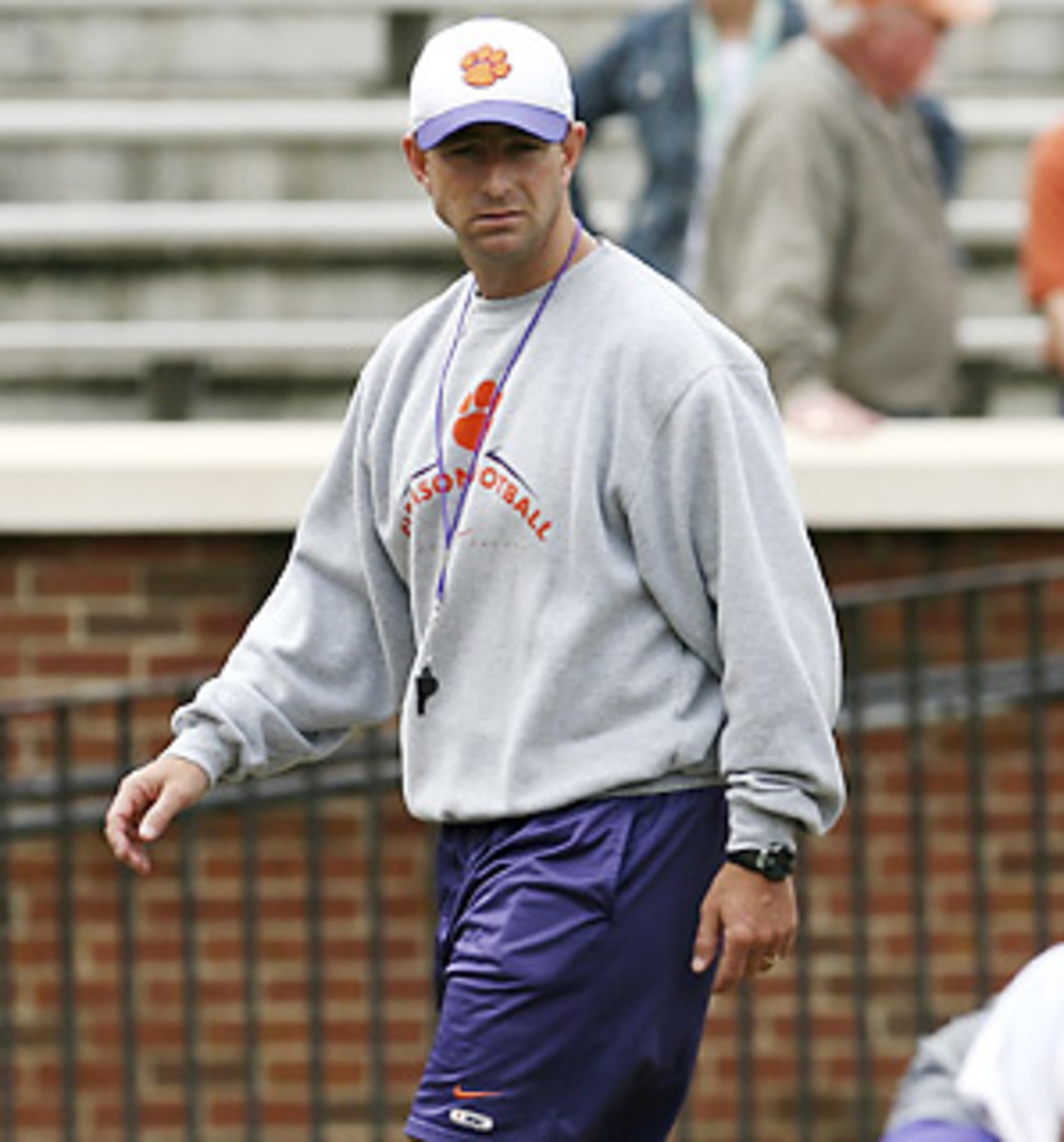ACC renews push for early signing period, Auburn on prowl and more
Because every time a conference or an organization -- the American Football Coaches Association, for example -- pushes for an early signing date, more people seemingly jump on board. A few more conferences probably will vote to push the idea at their spring meetings. The one to watch, though, is the SEC, where coaches have warmed to the idea in recent years but athletic directors have not. If the SEC pulled the switch, some of the other opponents (Pac-10, Mountain West) might follow.
Conference commissioners, who answer to university presidents and athletic directors, are the only ones who need to approve the idea. The Collegiate Commissioners Association administers the National Letter-of-Intent program, and -- as you might have guessed -- the commissioners run the CCA. If they voted in their June meeting in Colorado Springs, Colo., to approve an early signing day, it would happen.
Very little will have changed by then, though the end of the class of 2009 recruiting process might have swung a few more influential people to the other side.
Though there weren't any more last-minute switches than usual this season, coaches spent a lot of money playing defense on committed players. In any other year, that might not be a big deal. But after an economic collapse that has left universities pinching every penny, presidents may want to examine why coaches need to fly across the country in January to recruit a player who committed six months earlier. Judging by the commitment dates of the members of the class of 2009, more than half probably would have signed in December. At some point, athletic directors may decide those cost concerns supersede the thorny issues an early signing period would produce if a given AD wanted to fire his coach.
The specifics of the plan remain up for debate. ACC coaches would like to ban official visits before Dec. 1 to allow them to concentrate on the season, but SEC and Big 12 coaches who want recruits to soak in the majesty of the gameday experience might disagree. Clemson coach Dabo Swinney said he actually would prefer an August signing date, which would give football a system similar to basketball, which features signing dates immediately before and shortly after the season. Swinney won't likely find much support from athletic directors, though, who would cringe at the thought of releasing a dozen signees from their scholarships after a firing.
So while we don't know exactly what version of the plan will appear in front of commissioners in June, we know this: ACC commissioner John Swofford will vote yes. He just isn't sure how many of his peers will follow suit. "In the recent past, there hasn't been strong support for it from a national perspective," Swofford said. "But certainly there's been a consistency with our coaches, and I think also with our athletic directors, to support taking a look at that and trying to work with other conferences to see if we can develop something that enough people can agree upon to get it through from a legislative standpoint."
Ole Miss coach Houston Nutt didn't recruit the players whose academic failings cost the Rebels three 2010 scholarships, but thanks to his signing frenzy in February, Nutt will have to alter his recruiting to clean up the mess.
The NCAA docked the scholarships because the Rebels' Academic Progress Rates score fell to 910 after several players recruited by former coach Ed Orgeron left the program while academically ineligible. Typically, the NCAA would take away scholarships for this year, but all of the scholarships at Ole Miss are spoken for after Nutt signed 37 players in February. Ole Miss obviously signed several of those players intending to place them in junior colleges, but the scholarship losses could force Nutt to re-evaluate which players he will grayshirt.
Ole Miss athletic director Pete Boone told The (Jackson, Miss.) Clarion-Ledger the APR should not cost the Rebels scholarships beyond 2010. Still, the situation at Ole Miss should give coaches pause when they choose to sign more than 25 players a year.
Alabama fans got quite a chuckle when Auburn assistant coaches began arriving last month at high schools in stretch limousines festooned with Auburn paraphernalia. The Tiger Prowl, as Auburn coaches called it, got lampooned on radio shows and in newspaper columns across the state.
Until everyone realized the prowl had served its purpose.
The idea -- hatched by assistants Trooper Taylor and Curtis Luper, who had done the same thing at Oklahoma State -- got everyone talking about Auburn at a time when Alabama has a virtual stranglehold on the best prospects in the state. School days ground to a halt when the limo pulled into the parking lot. For the rest of the day, students talked about Auburn. So did their parents.
That's exactly the boost Auburn needed. In the final years of former coach Tommy Tuberville's regime, the Tigers hadn't been as visible on the recruiting trail. Recruits barely remember what they ate for breakfast yesterday, much less that Auburn beat Alabama six consecutive times from 2002-07. They needed a reminder that Auburn was still interested, and the limos provided that.
"We're all selling the same product," Taylor told The Birmingham News. "We have to do something that puts ours ahead or separates ours from the rest. A lot of people say it's Auburn versus Alabama. It's really about an in-state deal. We can't afford to lose JaMarcus Russell to LSU and Pat White to West Virginia. If those kids were playing for in-state schools, just think about the championships. It's really about keeping the kids in state."
Now, coach Gene Chizik and his staff must capitalize on that buzz and convince the next Russell or White to come to Auburn. That's the hard part, especially considering their counterparts in Tuscaloosa are some of the best closers in the nation.





